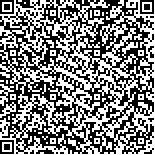| 摘要: |
| [摘要] 目的 探讨强化胰岛素治疗(intensive insulin therapy,IIT)在重型颅脑损伤(severe traumatic brain injury,sTBI)中的临床应用价值。方法 对200例sTBI患者(GCS评分3~8分),入院后随机分为IIT组100例及常规胰岛素治疗(conventional insulin treatment,CIT)组100例。IIT组血糖(blood glucose,BG)控制在3.9~6.1 mmol/L,CIT组血糖控制在8.3~10.1 mmol/L。患者入院后即开始采用持续静脉泵入胰岛素对血糖进行控制,记录两组患者平均血糖水平、胰岛素用量、低血糖发生率,于伤后6个月时根据GOS评估法判断疗效(分为良好、中残、重残、植物生存和死亡)。结果 治疗期IIT组BG低于CIT组(P<0.01),低BG发生率、单位时间胰岛素用量均高于CIT组(P<0.05或P<0.01)。伤后6个月,两组在良好、中残、重残、植物生存和死亡例数比较差异无统计学意义(P>0.05)。结论 强化胰岛素治疗并不能改善sTBI的预后,且增加了低BG发生率,血糖控制在8.3~10.1 mmol/L是比较理想的水平。 |
| 关键词: 重型颅脑损伤 强化胰岛素治疗 血糖 预后 |
| DOI:10.3969/j.issn.1674-3806.2014.05.11 |
| 分类号:R 58 |
| 基金项目: |
|
| Clinical application value of intensive insulin therapy in severe traumatic brain injury |
|
HUANG Peng,HUANG Zhai, QIN Wen-bo,et al.
|
|
2nd Department of Critical Care Medicine,the People′s Hospital of Guangxi Zhuang Autonomous Region, Nanning 530021,China
|
| Abstract: |
| [Abstract] Objective To discuss the clinical application value of intensive insulin therapy(IIT) in severe traumatic brain injury(sTBI).Methods Two hundred patients with sTBI(GCS 3~8) were randomly divided into the intensive insulin therapy group(IIT,n=100 cases)and the conventional insulin treatment group(CIT,n=100 cases). IIT group′s blood glucose(BG) was controlled in 3.9~6.1 mmol/L, CIT group′s blood glucose was controlled in 8.3~10.1 mmol/L. The patients after admission were treated using continuous intravenous infusion of insulin to control blood glucose.The average blood glucose levels, insulin dosage, incidence of hypoglycemia in two groups were recorded. Six months after injury, the efficacy was evaluated according to GOS valuation method including 5 grades: good, moderate disability, severe disability, vegetative state, and death.Results During treatment BG in IIT group was lower than that in CIT group(P<0.01), the incidence of hypoglycemia,average hourly insulin dosage in IIT group were higher than those in CIT group(P<0.05 or P<0.01). After 6 months there were no statistically significant difference between the two groups in the efficacy including good, moderate disability, severe disability, vegetative state, and death(P>0.05).Conclusion IIT does not improve the prognosis of patients with sTBI, but increase the incidence of hypoglycemia, blood glucose is controlled in 8.3~10.1 mmol / L is ideal. |
| Key words: Severe traumatic brain injury(sTBI) Intensive insulin therapy(IIT) Blood glucose(BG) Prognosis |

